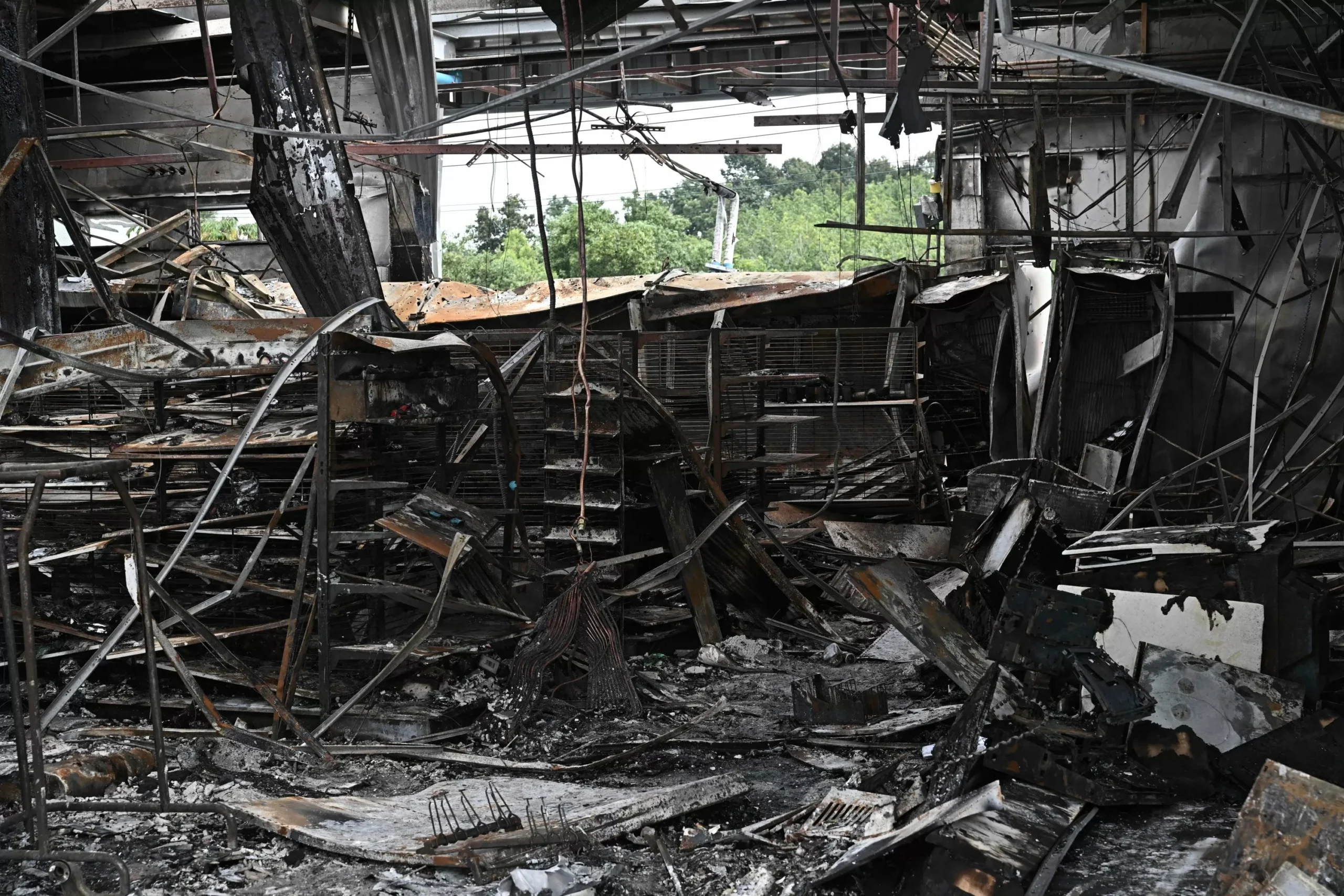Tens of thousands of people were forced to flee their homes on Friday as violent clashes erupted between Thailand and Cambodia along their shared border. The conflict, which has been ongoing for years, escalated to a new level as both sides engaged in fierce fighting, raising fears of a wider and more devastating conflict.
The situation began on Thursday when Cambodian troops crossed into a disputed area near the Preah Vihear temple, a UNESCO World Heritage site. Thai soldiers responded by firing artillery shells, leading to a deadly exchange of fire that continued into Friday. The clashes have resulted in at least five deaths and dozens of injuries on both sides.
The United Nations Security Council held an emergency meeting to address the escalating situation, with Secretary-General Antonio Guterres expressing deep concern and calling for an immediate ceasefire. The council urged both countries to exercise restraint and engage in peaceful dialogue to resolve the conflict.
The ongoing border dispute between Thailand and Cambodia has been a source of tension for many years, with both sides claiming ownership of the area surrounding the Preah Vihear temple. The temple, which is located on a cliff in the Dangrek Mountains, has been a point of contention between the two countries since it was awarded to Cambodia by the International Court of Justice in 1962.
The recent clashes have raised fears of a wider conflict that could have devastating consequences for the region. The border between Thailand and Cambodia is heavily militarized, and any escalation of the conflict could lead to a full-scale war. This would not only result in loss of life and displacement of civilians but also have a significant impact on the economies of both countries.
The United Nations has called for an immediate de-escalation of the situation and for both sides to engage in peaceful dialogue to find a lasting solution to the border dispute. The international community has also expressed its support for a peaceful resolution and has offered to mediate talks between the two countries.
The people living in the affected areas have been the most affected by the conflict. Tens of thousands of civilians have been forced to flee their homes, leaving behind their livelihoods and possessions. Many have sought refuge in nearby towns and cities, while others have been forced to live in makeshift camps with limited access to food, water, and medical care.
The situation is particularly dire for children, who are the most vulnerable in times of conflict. Many schools in the affected areas have been forced to close, depriving children of their right to education. The ongoing violence has also taken a toll on their mental and emotional well-being, leaving them traumatized and fearful.
Despite the dire situation, there is still hope for a peaceful resolution. Both Thailand and Cambodia have a long history of friendship and cooperation, and it is crucial for them to come together and find a solution to the border dispute. The international community stands ready to support and assist in any way possible to help bring an end to the conflict.
In the midst of this crisis, it is heartening to see the resilience and strength of the affected communities. Despite the challenges they face, they have come together to support each other and show solidarity in the face of adversity. Their determination to overcome this conflict and rebuild their lives is a testament to the human spirit.
As the situation continues to unfold, it is important for all parties involved to prioritize the safety and well-being of civilians. The lives of innocent people should not be put at risk in the pursuit of political agendas. It is time for both Thailand and Cambodia to put aside their differences and work towards a peaceful resolution that benefits both countries and their people.
In conclusion, the ongoing border clashes between Thailand and Cambodia have raised serious concerns and fears of a wider conflict. The international community has called for an immediate de-escalation and peaceful resolution to the dispute. It is crucial for both countries to engage in dialogue and find a lasting solution to the conflict, while also prioritizing the safety and well-being of civilians. Let us hope that peace and stability will soon be restored to the region, and the affected communities can return to their homes and rebuild their lives.






![Complete BritRail Pass Guide [Types, How to Use It, Pros + Cons]](https://inside-news.uk/wp-content/uploads/2025/06/00221EB4-BCA2-4DBB-6CD4-83DBC37D71FA-120x86.webp)














